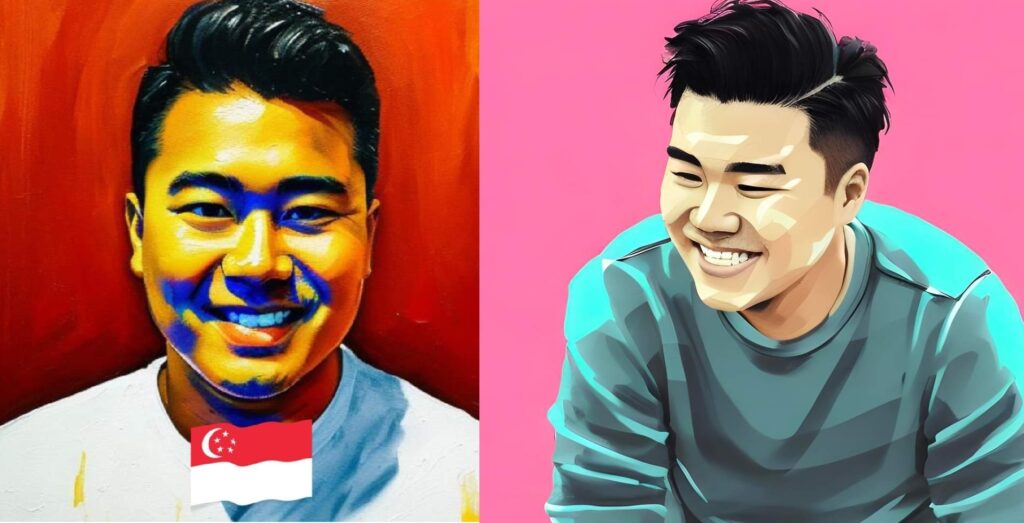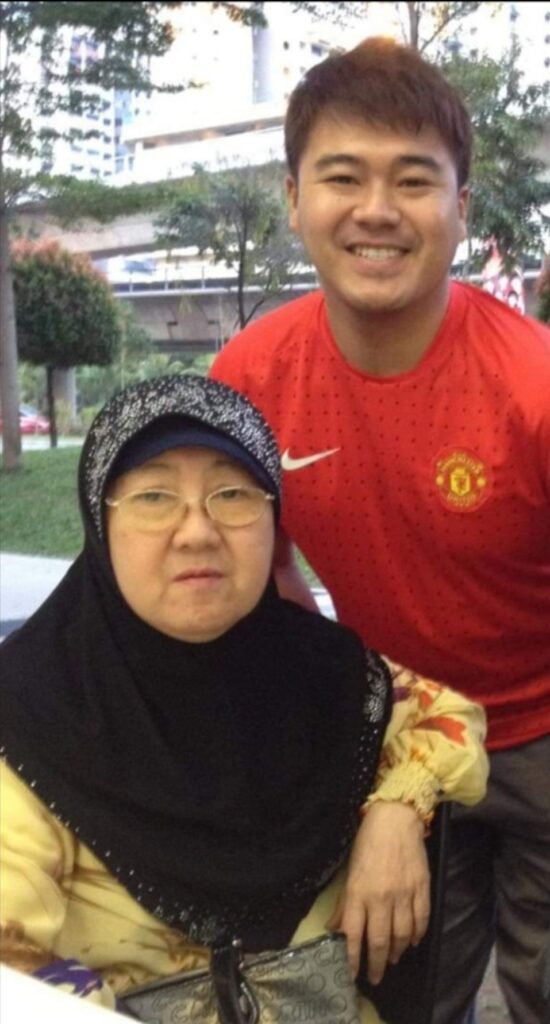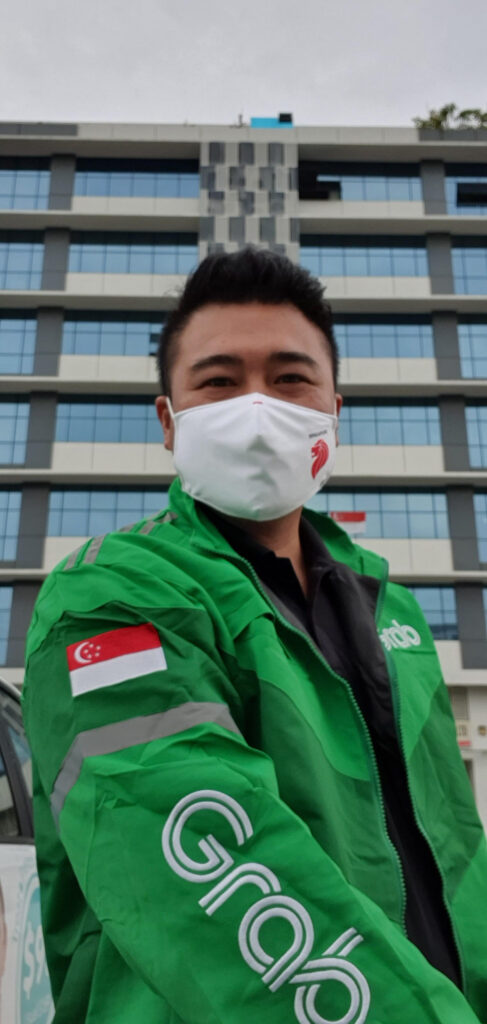Death is a terrifying notion for all of us. It is one of the greatest unknowns of life and every major religion has sought to answer this fundamental question of what lies in the great beyond. For those who do not accept the existence of an afterlife, it can be unsettling to entertain the idea that death is the final end, that we will return to nothingness. Roy shares his story and thoughts on this matter:

***
Having lost most of his immediate family and having had some close encounters with death himself, Roy is uniquely placed to offer his insights on this matter.
Upon officially renouncing Islam in 2017, the biggest issue on Roy’s mind was how to conduct his funeral.
He discovered that you could either pledge to donate your organs or your whole body to the National Organ Transplant Unit (NOTU). For the latter option, NOTU will first harvest all the organs that are suitable for transplant and the remainder of the cadaver is used for medical training.
Roy likens it to being a “silent mentor” to the students so that they can become skilled doctors in the future. He believes that this is the most meaningful choice as it will allow him to continue contributing to humanity long after he is gone.
| You can learn more about organ donation here at liveon.gov.sg. |
***
Donating organs after death has become a favourite talking point of his whenever he meets other ex-Muslims. Not only will this spare their families the shock from realising that their loved one cannot be buried in the Muslim cemetery with the rest of the family, it will also relieve them of the extra work and financial burden of making alternative funerary arrangements while they are in the midst of grieving.
“When I die, I don’t need my body anymore, it is a shell of who I was, so why not give it to someone who desperately needs it?” Roy asked.
Muslims, however, insist that the body of the deceased must be buried in as close to perfect a condition as possible. This stems from the desire for their loved ones to have a fully intact and functional body in the afterlife.
Roy still vividly recalls what happened when his father passed away when he was 6. His father had died at home and when the ambulance came, the entire family vehemently refused to let them take his body away to the morgue. He overheard his relatives saying “if they take him away to do the autopsy, they will take out his eyes, then he won’t have his eyes in the afterlife.”
As he got older, Roy decided that these fears were unfounded.
The latest fatwa by MUIS states that it is permissible for Muslims to be included in the opt-out Human Organ Transplant Act.
End-of-life Planning
Having lost many members of his family, Roy is acutely aware of the fact that death can strike at any moment. He has already settled all his affairs, from drafting up his will to even writing his own eulogy. Knowing he has covered all his bases gives him immense reassurance.
| Did you know the government has launched a website for end-of-life planning? You can write in your wishes at mylegacy.life.gov.sg. |
***
Roy wants to normalise having conversations about death. For most people, death is a deeply unsettling topic that they would rather sweep under the carpet. But for him, talking openly about death removes the tension and worries. In a mixture of seriousness and levity, he told his close friends “If I die, make sure you do my memorial the way I want it, you don’t f*** it up ah?”
Humour is a great tool to diffuse awkwardness and temper sadness. When they were preparing his late brother for his funeral, Roy made jokes about his memories of him. He wanted his family to celebrate his brother’s memory instead of feeling pity.
“Of course I was crying non-stop after the funeral,” he said. “You have to cry, you have to laugh. Life is always constantly changing, I don’t need to be in the same state of sadness all the time.”
Handling Grief As An Irreligious Person

Roy is very well-acquainted with the cycle of life and death, from bidding goodbye to family members to welcoming new additions to the family. It gives him the reassurance that when the time comes for him or any of his loved ones, he knows how to grieve and let go properly.
The first time that grief hit him very hard was when he had lost his grandmother at 15. It was so painful that it triggered his first suicide attempt.
He kept it to himself because he did not know how to talk about it and he did not feel anybody would listen to him. He dealt with his grief by offering a prayer to his grandmother after his five daily prayers. However, consoling himself with the thought that she is now in a better place did not offer much respite; he likens it to a painkiller that only brings temporary relief, but the memories and feelings will come surging back.
He believes in honouring our emotions by accepting them and experiencing them fully without holding back. Grief is a difficult process but it will come to pass. When his mother passed away, he cried and cried every day for three months straight until he had no tears left to shed. The sadness is gone, and all that is left is his memories of his mother.
| Click here to read Roy’s tribute to his mother |
***
Contemplations About Death
“Memento Mori, Memento Vivere”—Remember you will die, remember how to live.
This mantra is a constant reminder that life and death are always next to each other.
It’s always on Roy’s mind that death can come at any time. Sometimes, during his work as a Grab driver, he experienced near-misses on the road. In 2022, Roy had a severe dengue infection with a week-long high fever.
Back then, he asked himself: “Is this how I’m going to die? It sucks lah, but if this is how I’m going to die, so be it, just let me die. If you’re in so much pain, the only thing you want is relief.”
Knowing that one day he will no longer be on this planet gives him a certain sort of relief—no more bills to pay, no more problems to worry about, no more sadness to face.
“Every man has two deaths, when he is buried in the ground and the last time someone says his name.”―Ernest Hemingway.
It is human nature to want to be remembered long after we are gone, but realistically, the memories of us will die with the ones who knew us. Roy does not desire to be remembered forever, but he takes comfort in being remembered in the short term for making a difference in the lives of others.
One thing that gives him anxiety is that if either him or his brother dies, the other will be left all alone by himself as the sole survivor of their immediate family.
He was supposed to meet his other brother for a meal but he could not find the time. When the news came that he passed away from a sudden heart attack, he regretted not seeing him for one last time. He now makes a conscious effort to spend as much time as possible with his surviving brother.
| Read Roy’s reflections after his elder brother’s passing |
***
Witnessing the passing of his family one by one was a wake-up call for Roy. He started being more intentional about his time and his priorities. He has been working through his bucket list, learning to play the piano and saving up for a trip to England to watch Manchester United play live.
He also became more health-conscious and reduced the frequency of going drinking with his friends.
In the past, whenever he had quarrels with his wife, he would not talk to her for a few days. But now, they strive to avoid confrontation and be more forgiving of each others’ mistakes. Every day, they say goodbye properly when they leave for work and kiss each other good night. If one of them dies, at least their spouse’s last memory is something happy that will uplift them and help them through the grieving process.
Stepping Up in Times of Crisis

At the peak of the Covid-19 pandemic, Roy was part of the pioneer group of Grab drivers who stepped forward to ferry patients to the test centres, hospitals and polyclinics.
Many of his elderly colleagues wanted to play it safe. During the early stages, not much was known about the virus and most people were rightfully scared of the unknown.
Later on, while seeing people becoming severely afflicted and dying did make him worried, he had the reassurance that if he followed the decontamination protocols to the T, nothing would go wrong.
Death and grief are understandably difficult topics, but it need not be this way if we are equipped with the right mental tools and have made the necessary preparations, as Roy has shown us.




